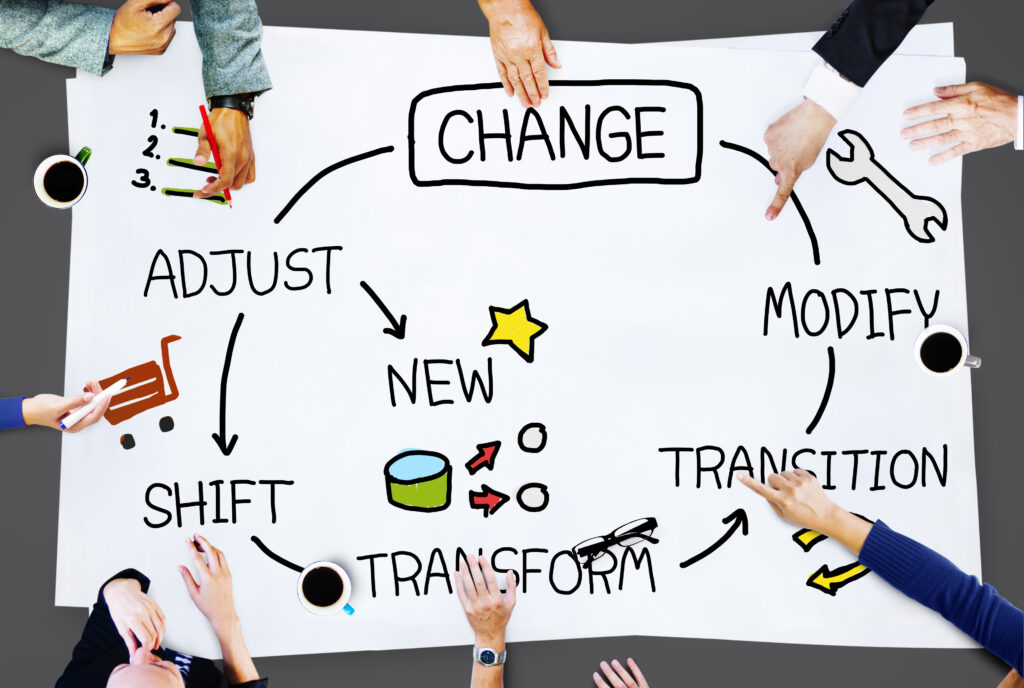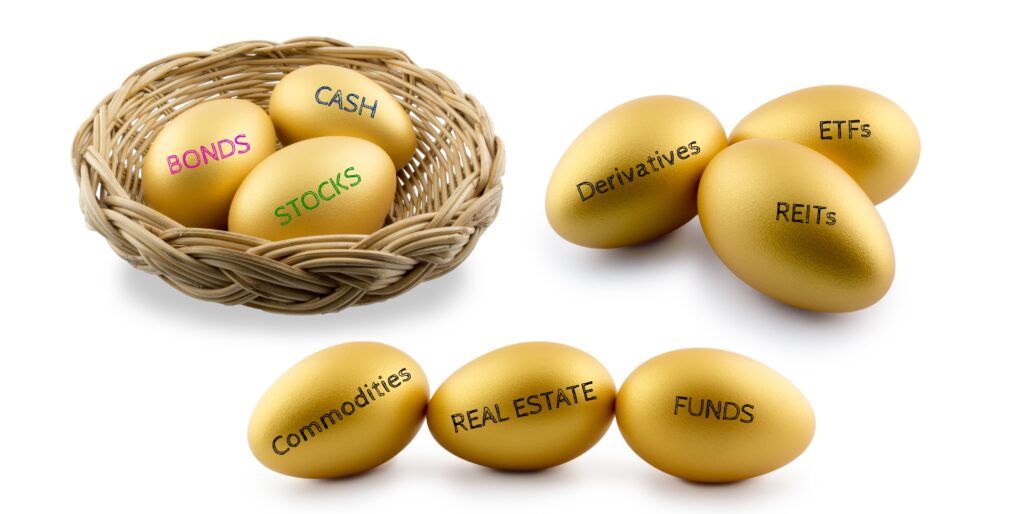Your unique life experience is what makes you who you are. It’s also your biggest asset. It’s all too easy to measure success in terms of money and other tangible items. Less easy is to recognise your strengths in terms of intangible assets, such as knowledge and resilience.
Life is full of ups and downs, and through it all, we collect valuable skills, experiences and relationships that shape who we are and inform our decisions. From overcoming challenges to achieving milestones, our personal history is a treasure trove of lessons learned and future growth opportunities.
In the world of financial planning, you often hear about ‘asset classes’. This refers to different categories of investment, including cash, bonds, property and equities (shares). Important stuff when planning your finances, but this focus on money usually ignores the intangible assets that we can all draw upon when planning a happy and fulfilling life.
In their book, The 100-Year Life, authors Lynda Gratton and Andrew J. Scott outline four categories of asset that are becoming increasingly important as life expectancy continues to expand.
Only one of those four categories is financial assets. It’s the one that’s easiest to relate to, because it’s tangible and easily measurable. But no less important are productive assets, vitality assets and transformational assets. These are intangible and harder to measure. They are unique and often hidden, buried under years of life experience.
In a world that is continually changing at an ever-faster pace, it’s your intangible assets that will stand you in good stead. Welcome to the world of life planning, where we focus more on the joy of self-worth, rather than net-worth.
Productive assets
This asset class represents your accumulation of knowledge and skills, amongst other attributes. Deployed well, this can help support productive work and enhance your earnings and career prospects.
Crucially, it’s not just about having the knowledge and skills inside of you. Innovation and creativity are essential to succeed in an increasingly automated world. Effective communication, the ability to work with others and your reputation all feed into this asset class.

More than ever, lifelong learning is vital for a long and fulfilled life. The traditional model of acquiring the bulk of knowledge at school and university, then specialising in one career, has gone. The speed of change, coupled with longer living brings the need for multiple careers, flexibility and mental agility. But this also brings exciting opportunities like lengthy sabbaticals, “mini-retirements” and improved chances of finding your purpose in life.
All of this helps to create a high sense of career wellbeing, but a challenge with this asset class is its difficulty to measure. You may not find it easy to answer the question “What are you good at?”.
Working with a coach or mentor can help to reveal hidden strengths and you can also try exercise like Gallup’s CliftonStrengths assessment.
Vitality assets
The increased focus on physical and mental health in recent years is encouraging. If you regard health, friendships and love to be more important than money, then you’ll recognise that vitality assets are what make you feel happy and fulfilled. They help you stay feeling positive and motivated.

This involves aspects of life that money can’t buy, and it needs continual investment of your time and energy. Like the concept of lifelong learning to grow your productive assets, it’s important to nurture and grow vitality assets throughout life.
Research suggests that genetics may account for around a quarter of thinking skills, which includes an impact on rate of decline as you age. But the bulk of mental agility is dependent on lifestyle. That includes choices around daily actions, community involvement, relationships with others, physical fitness and diet.
This feeds nicely into three of the five essential elements of wellbeing, as defined by Tom Rath and Jim Harter in their book Wellbeing. Vitality assets can help improve your feelings of social wellbeing, community wellbeing and physical wellbeing.
You can read more about this in my article, “Get thriving on all 5 elements of wellbeing for your best life”.
Transformational assets
This asset class is a little harder to grasp, but it’s becoming increasingly important as the pace of change continues to accelerate.
Picture the traditional model of a 3-stage life, where broadly speaking, the first stage is taken up by education until our teens or 20s. Then we move into a long phase of work, before finally settling into retirement.
With longer living and accelerating change comes a need for more flexible models. Financially speaking, it will become harder than ever to build up sufficient cash reserves to fund a multi-decade retirement from age 65. But to enjoy a long and healthy life with a sense of purpose, you need more than money.

 Transformational assets include resilience and openness to change
Transformational assets include resilience and openness to change
The Japanese concept of Ikigai recognises the need to always be engaged in meaningful activities. Work that doesn’t feel like work, yet is something that you love, that you’re good at, that the world needs and that you are paid for.
Transformational assets are your ability to stay motivated through periods of change. This is your capacity to successfully adapt to life transitions, whether forced upon you externally, or brought about through your own choice.
Self-knowledge and resilience are important here. Understanding your values, your strengths and your own character can help see change as less of a threat. Openness to new experiences and having a diverse network of friends and co-workers can also help to broaden awareness and accept new perspectives.
Financial assets
Finally, we come to the fourth asset class, which traditionally, has been the focus of financial planning. Tangible assets like investments, property, bonds and cash.

 Financial assets
Financial assets
Money is a vital component of a happy life for most, and it’s management becomes ever more complex as we live longer. When you consider the shift away from the traditional 3 stage life to a multi-stage life, management of personal finances becomes even more important. We’ll need to be able to fund periods of re-education, extended breaks from work and the health-related costs of living longer.
We’ll need to get used to the idea that financial assets will not simply accumulate all the way through working life. There will be times when we need to run down our savings to pay for re-training or to supplement a temporary drop in earnings due to a career change. Planning for sabbaticals will become more common as we seek to broaden horizons and re-charge energy levels.
This means the concept of financial planning will become increasingly important. It’ll need greater creativity and flexibility than ever before and less of the logic attributed to the 3-stage life.
Using life experience to create financial assets
Financial wellbeing supports the other four areas of wellbeing identified earlier. Money can help to improve happiness, but only up to a certain point. Once your basic needs, such as shelter, food and safety are taken care of, happiness comes from a sense of purpose, belonging and making a positive contribution.
Whilst financial assets are important, your life experience encompasses a treasure trove of productive, vitality and transformational assets.
And here’s the reason why your life experience is your biggest asset:
The knowledge and skills that you’ve developed, the friends and colleagues you’ve connected with and the challenges you’ve overcome all feed into your ability to generate financial assets.
The growth of your financial assets is affected more by how you deploy your intangible assets, than tinkering with investment products and complex tax avoidance schemes.
Summary
Life planning seeks to encompass all of your strengths and aspirations to make the most of your time on this planet. It’s not always easy to blow your own trumpet, but working with a coach or life planner can help you move closer to finding – and funding – your purpose.
However you feel about your money right now, it’s your life experience that can have the biggest impact on your future financial success.




 Production
Production